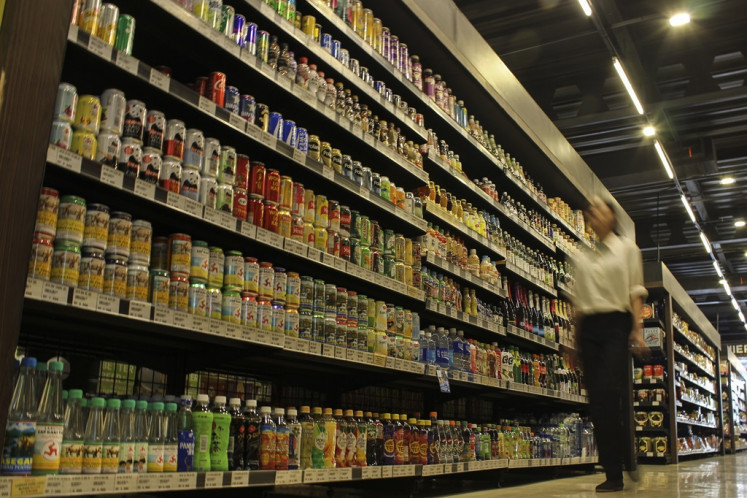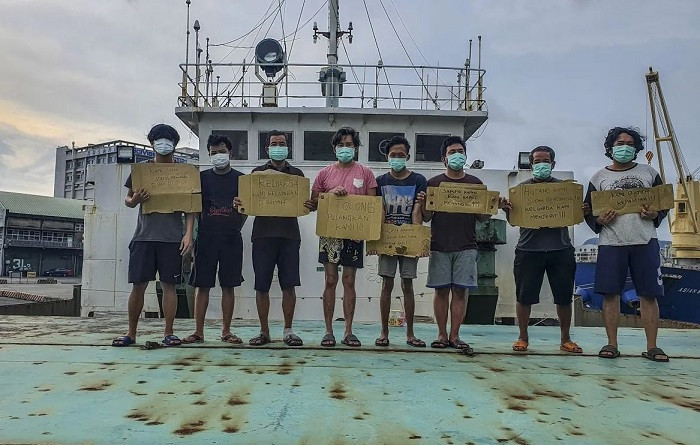Popular Reads
Top Results
Can't find what you're looking for?
View all search resultsPopular Reads
Top Results
Can't find what you're looking for?
View all search resultsThe Economic Damage of Changes to Government Regulation No.71/2019
Change text size
Gift Premium Articles
to Anyone
I
ndonesia’s incoming government has boldly proclaimed a growth target of 8 percent. To reach the objective outlined by Prabowo Subianto by 2028, it is critical for the country to harness opportunities in the digital economy.
Ambitious targets, however, can be undermined by policy decisions that do not support growth objectives. One potential regulatory change to the location and storage of data will harm Indonesia’s prospects for achieving broader economic development.
Regulatory adjustments to a provision known as Government Regulation No. 71/2019 will create several new challenges for businesses operating in the country. Three are especially important: harming smaller businesses that make up most firms in Indonesia, deterring inbound investment and hampering Indonesia’s plans to join important global groupings.
First, potential changes to sections of rules on the organization of electronic systems and transactions will create significant challenges to the millions of smaller firms across Indonesia. The changed regulations, simply put, will make it necessary for a growing amount of information used in Indonesia to remain hosted in Indonesia.
This may sound like a sensible idea, but it comes with risks and challenges. For smaller firms, it will probably mean less choice for data hosting. Small firms may not even realize where their data is held, but they benefit from open hosting rules that allow their service providers to store information in locations that make business sense. These decisions can lower the costs for small companies.
Many of the current data hosts also provide significant benefits to local Indonesian firms by providing better data protection and security than smaller data storage firms with less experience and less capital. Having a data breach can be catastrophic for all types of smaller companies.
Second, the rise of new technologies such as generative artificial intelligence are supercharging the demands for data storage. As a result, large companies are racing to build new capacity around the globe.
But little of this new investment money will be placed in locations with onerous data storage rules. Firms need clarity and transparency in regulations and laws. Vaguely worded requirements will not promote confidence in the future and will not stimulate firms to choose Indonesia as a destination of choice for investment in data storage or digital technologies of the future.
A lack of foreign investment by key data companies compounds the challenges faced by Indonesia’s micro, small and medium enterprises (MSMEs). If large players are deterred by GR-71 adjustments from building new capacity, local MSMEs will face fewer good options for managing their own data.
Third, Indonesia has wisely decided that growth can be supported by joining international groupings. This includes the Organisation for Economic Cooperation and Development (OECD) and the Comprehensive and Progressive Trans-Pacific Partnership (CPTPP) trade agreement.
Joining these high-standard economic groupings can provide additional external momentum to Indonesia’s ambitious plans for supporting future economic development. Membership will help drive domestic-level reforms to come into closer alignment with existing partners, significantly widening the opportunities for Indonesia’s innovative firms to compete.
The OECD’s recommendations on data flows, however, run counter to possible adjustments to GR-71. The OECD recognizes the critical importance of data as a key input to economic development and social value.
As the OECD says, data flows with trust enhance digital transformation. Any exceptions to data flows need to be carefully considered. The overly broad and vague adjustments currently under review for GR-71 do not fit well with OECD data flow recommendations.
Nor do these domestic amendments match the data flow and hosting requirements in the CPTPP. Indonesia has just formally submitted its request to join this 12-party trade agreement. A key aspect of determining future members is alignment with existing CPTPP rules. Changes to GR-71 will not inspire confidence.
Investors have taken note of Indonesia’s ambitions. Decisions to request membership in organizations like the OECD and CPTPP can encourage firms to invest significant capital in new capacity for future growth. But these investors will pause if domestic regulatory changes are out of alignment with external organizations.
Achieving Indonesia’s ambitious growth target requires sensible supportive rules, especially for key sectors like the digital economy. Good digital regulation encourages small businesses to grow, drives new investment opportunities and supports global membership in key institutions.
The ideas expressed in this article are those of the author and do not reflect the official stance of The Jakarta Post
Source : Hinrich Foundation











